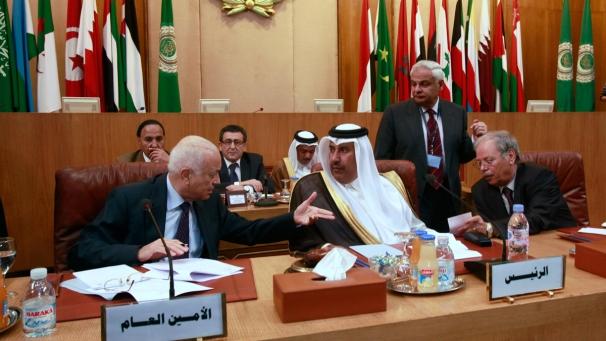Unrest, protests and violence continue in the Middle East. On Nov. 12, the Arab League threatened to suspend Syria until its government, headed by president Bashar al-Assad, ceased violent attacks on anti-government protestors. In an emergency meeting held on Nov. 16, the Arab League confirmed the suspension.
Government loyalists protesting the suspension by the Arab League stormed the Saudi Arabian and Qatar embassies as well as the French and Turkish consulates, according to Al Jazeera. The Turkish government decided to promptly withdraw Turkish citizens stationed in Syria.
The Arab League has suspended Syria because of the extremely violent crackdown on anti-government protests that has resulted in an estimated total of over 3,500 deaths since March, according to CBC News.
Syrian president Assad, who has held office since 2000, has been criticized greatly by the international community for the violence that has taken place in Syria.
According to The New York Times, on Nov. 18, the Arab League decided to send 500 civilian monitors to Syria in order to check on the country’s promise to end cruel and violent treatment of protestors. This decision was a surprising follow-up on their decision earlier in the week to suspend Syria all together from the league.
The peace deal the Arab League extended to Syria on Nov. 16 offered to delay the suspension, on the condition that the government halt its violent crackdown on protestors and remove troops and tanks from cities.
In a New York Times article, reporters Aida Alami and Nada Bakri illustrated the Arab League’s attempts to stop the rising number of deaths in Syria through extension of a peace deal.
“The draft resolution condemns the ‘systematic’ human rights violations by the Assad government, including ‘arbitrary executions, excessive use of force and killing and persecution of protesters and human rights defenders, arbitrary detention, enforced disappearances, torture and ill-treatment of detainees, including children,'” the New York Times reports.
In order for the Arab League to consider ending the suspension, Assad must end the human rights violations that his military is currently carrying out.
Turkish Prime Minister Recep Tayyip Erdogan issued a call for Assad to step down from office. He challenged Assad to consider history and recognize the deaths of dictators because of their violent rulings against the people of their countries.
“If you want to see someone who has fought until death against his own people, just look at Nazi Germany, just look at Hitler, at Mussolini, at Nicolae Ceausescu in Romania,” said Erdogan in a televised speech. “If you cannot draw any lessons from these, then look at the Libyan leader who was killed just 32 days ago.”
Breakaway groups of protestors in Syria have admitted to engaging in violent disputes. Most recently, the Free Syrian Army — made up of army deserters — assumed the blame for attacking an intelligence station in a city outside of Damascus. In addition, on Nov. 14, government troops and military deserters engaged in a violent exchange that resulted in the death of several dozen people.
According to Mark C. Toner, a State Department spokesman in Washington, D.C., the U.S. does not have detailed or thoroughly accurate information on the violent unrest in Damascus and across the country, but the U.S. still publicly opposes the violence occurring in Syria.
“We don’t condone (the violence) in any way, shape or form, but let’s be very clear that it is the brutal tactics of Assad and his regime in dealing with what began as a nonviolent movement (that are) now taking Syria down a very dangerous path,” said Toner to the New York Times.
According to Al Jazeera, U.S. Secretary of State Hillary Clinton spoke about the increase in violent disputes between army defectors and the national military.
“I think there could be a civil war with a very determined and well-armed and eventually well-financed opposition that is, if not directed by, certainly influenced by defectors from the army,” said Clinton.
The Arab League issued a statement to President Assad indicating that he had until midnight on Nov. 19 to cease attacks and withdraw troops from cities.
On Nov. 26, the Arab League passed pending sanctions on Syria. The sanctions impose constraints on flights into the country, as well as putting a hold on the movement of money in banks, and limiting the travel of Syrian officials.

